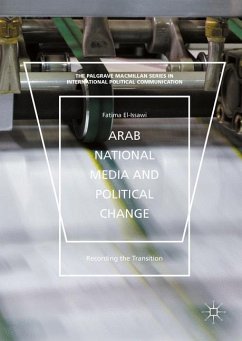
The Media in Arab Countries
From Development Theories to Cooperation Policies
Versandkostenfrei!
Versandfertig in über 4 Wochen
159,99 €
inkl. MwSt.
Weitere Ausgaben:

PAYBACK Punkte
80 °P sammeln!
In early research work on international communication, the countries of North Africa and the Middle East were seen as part of the "Third World", and the media had to be at the service of development. However, this situation is changing due to the transnationalization and liberalization of the media. Indeed, since the 1990s, the entry of the South - and Arab countries in this case - into the "information society" has become the dominant creed, although the vision is still globalizing and marked by stereotypes. Representations of these societies are closely associated with international relation...
In early research work on international communication, the countries of North Africa and the Middle East were seen as part of the "Third World", and the media had to be at the service of development. However, this situation is changing due to the transnationalization and liberalization of the media. Indeed, since the 1990s, the entry of the South - and Arab countries in this case - into the "information society" has become the dominant creed, although the vision is still globalizing and marked by stereotypes. Representations of these societies are closely associated with international relations and geopolitics, characterized by tensions and conflicts. However, a force has come to disrupt the traditional rules of the game: Arab audiences. Digital media, the dissemination of which has been enabled by the implementation of the "information society", empowers them to participate fully in a media confluence. This liberation from the discourse has two major consequences: the media and journalism sector has become more strategic than ever, and action toward development must be reinvented.













